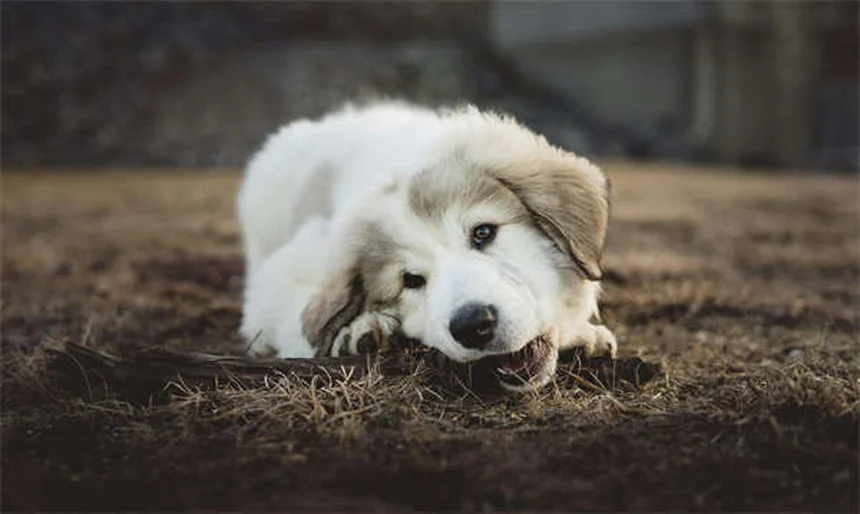Why does my cat's breath smell so bad? The answer is: Your cat's stinky breath (halitosis) usually signals dental disease, but can also indicate serious health issues like kidney disease or diabetes. I've treated hundreds of cats with bad breath, and here's what you need to know - that foul odor isn't just unpleasant, it's often your first warning sign of problems brewing in your feline's mouth or body. The good news? With proper care, we can usually fix kitty's dragon breath and prevent future issues. Let me walk you through the most common causes and simple solutions that actually work!
E.g. :5 Essential Guinea Pig Care Tips for Happy, Healthy Pets
- 1、What's That Smell? Understanding Cat Bad Breath
- 2、Spotting the Signs: Is Your Cat's Breath Normal?
- 3、Why Does My Cat Have Dragon Breath?
- 4、What Happens at the Vet?
- 5、Fixing the Stink: Treatment Options
- 6、Aftercare: Helping Your Cat Heal
- 7、Prevention: Keeping the Stink Away
- 8、Your Burning Questions Answered
- 9、Final Thoughts
- 10、Beyond the Basics: Digging Deeper into Feline Oral Health
- 11、Alternative Approaches to Feline Dental Care
- 12、The Cost Factor: Budgeting for Kitty's Dental Health
- 13、Special Considerations for Senior Cats
- 14、The Human-Animal Bond Through Dental Care
- 15、FAQs
What's That Smell? Understanding Cat Bad Breath
When Kitty's Kisses Stink
Ever leaned in for a sweet kitty kiss only to get hit with a wave of stinky breath? That's what we call halitosis in vet terms. I know it's not the most pleasant topic, but trust me, your cat's bad breath could be trying to tell you something important!
Here's the deal - that funky smell usually comes from bacteria partying in your cat's mouth. Imagine tiny microscopic creatures having a feast on leftover food particles and saliva, creating this sticky film called plaque. If we don't break up this party, it turns into hardened tartar that can really irritate your cat's gums and mouth.
More Than Just Bad Breath
While dental disease is the usual suspect, sometimes that stinky breath points to bigger issues like kidney problems or diabetes. Did you know cats with diabetes might have breath that smells oddly sweet? It's their body's way of waving a red flag!
The good news? Most cases aren't emergencies. But that doesn't mean we should ignore them. I've seen too many cats suffer from painful mouth conditions that started with simple bad breath. Let's not let that happen to your furry friend!
Spotting the Signs: Is Your Cat's Breath Normal?
 Photos provided by pixabay
Photos provided by pixabay
The Obvious and Not-So-Obvious Clues
You might notice the smell first - maybe it's like rotten eggs or something even worse. But here are other signs to watch for:
- Drooling more than usual (and not just when you open a can of tuna!)
- Red, swollen gums that look angry
- Weird colored gunk on teeth (think yellow, brown, or even green)
- Your cat turning into a picky eater or chewing funny
When to Really Worry
Now, here's something important - not all bad breath is created equal. If your cat's breath suddenly changes or gets way worse, or if they stop eating, that's your cue to call the vet ASAP. I once had a client whose cat's bad breath turned out to be from a piece of string stuck under the tongue!
Why Does My Cat Have Dragon Breath?
The Usual Suspects
Let's break down the main culprits behind kitty bad breath:
| Cause | How Common? | Typical Age |
|---|---|---|
| Dental Disease | Very Common | All ages (worse in adults) |
| Kidney Disease | Common in seniors | 7+ years |
| Diabetes | Less common | Middle-aged to senior |
| Mouth Cancer | Rare | Senior cats |
 Photos provided by pixabay
Photos provided by pixabay
The Obvious and Not-So-Obvious Clues
Some breeds like Siamese and Maine Coons can develop dental problems super early - we call this feline juvenile gingivitis-periodontitis. It's like they got dealt a bad hand when it comes to dental health. If you have one of these breeds, you'll want to be extra vigilant about their oral care.
And here's a question you might be wondering: "Can young cats get bad breath too?" Absolutely! While it's less common, I've seen kittens with terrible breath from viral infections or from chewing on things they shouldn't.
What Happens at the Vet?
The Mouth Exam
When you bring your stinky-breath cat to the vet, here's what to expect. First, we'll do a thorough look inside their mouth. Now, cats aren't always cooperative with this - would you want someone poking around your sore mouth? - so sometimes we need to use mild sedation to get a proper look.
Pro tip: Before your visit, try to notice if your cat is eating differently or doing weird things with their mouth. These details help us pinpoint the problem faster!
Beyond the Mouth
If the teeth look okay, we might need to dig deeper (figuratively, not literally!). Blood tests can reveal hidden issues like kidney disease or diabetes. I remember one case where bad breath led us to discover early kidney disease - catching it early made all the difference in treatment!
Fixing the Stink: Treatment Options
 Photos provided by pixabay
Photos provided by pixabay
The Obvious and Not-So-Obvious Clues
For dental causes, we do what's called a professional dental cleaning. This isn't like your quick brush at home - your cat gets anesthesia while we use special tools to scrape off all that nasty tartar, even under the gums where the real damage happens.
We might need to remove rotten teeth (don't worry, cats do great without them!), and we always polish the teeth afterward. Think of it like a car wash for your cat's teeth - we want that smooth finish to help prevent future buildup!
Other Treatments
Depending on what we find, your cat might need:
- Antibiotics to knock out infections
- Pain meds to keep them comfortable
- Special diets for kidney issues or diabetes
Aftercare: Helping Your Cat Heal
The Recovery Period
Most cats bounce back quickly from dental work. If teeth were removed, we'll put your kitty on soft food for 10-14 days - imagine it as their version of eating ice cream after getting wisdom teeth out!
Watch for pawing at the mouth (those stitches can feel funny), and consider using a recovery cone if needed. One of my patients looked so cute in his cone - we called it his "satellite dish"!
Long-Term Management
Here's the truth - dental care doesn't stop at the vet's office. You play the biggest role in keeping your cat's mouth healthy between visits. Regular brushing, dental treats, and checkups can make all the difference.
Prevention: Keeping the Stink Away
Brushing Basics
Want to know the best way to prevent bad breath? Brushing those teeth! Start slow - just rub some cat toothpaste on their teeth with your finger, then gradually introduce a soft brush. Focus on the outer surfaces and always end with a treat!
Here's a question I get all the time: "Do I really need to brush my cat's teeth every day?" Ideally, yes! But even a few times a week helps. Think of it like flossing - some is better than none!
Other Helpful Products
If brushing is a battle, try these VOHC-approved options:
- PlaqueOff powder (sprinkle it on food)
- Greenies Dental Treats (cats think they're getting away with something!)
- DentaLife treats (crunchy texture helps clean teeth)
Remember - never use human toothpaste! The ingredients can make your cat sick. Stick to products made specifically for our feline friends.
Your Burning Questions Answered
How Bad Is Too Bad?
If your cat's breath could knock out a small animal, it's vet time. But seriously, any persistent bad odor deserves a checkup. Normal cat breath shouldn't make you gag!
When It's More Than Just Breath
Watch for these red flags along with bad breath:
- Not eating or drinking
- Lethargy or hiding
- Pawing at the mouth constantly
- Weight loss
These signs mean drop everything and call your vet. Your cat could be in pain or dealing with something serious.
Final Thoughts
Dealing with cat bad breath might not be glamorous, but it's so important for your pet's health and comfort. With regular care and attention, you can keep those kitty kisses sweet (or at least not offensive!). Remember - your vet is always here to help with any mouth mysteries!
Beyond the Basics: Digging Deeper into Feline Oral Health
The Hidden Dangers of Ignoring Kitty's Bad Breath
You might think bad breath is just an annoyance, but let me tell you - those bacteria in your cat's mouth can actually travel through their bloodstream! This can lead to serious heart, liver, and kidney problems down the road. I've seen cases where simple dental cleanings could have prevented major health crises.
Here's something most cat owners don't realize - by age three, 70% of cats already show signs of dental disease. That's like if three out of every four kids in a classroom had cavities! The earlier we catch these issues, the better chance we have at reversing them.
The Emotional Toll of Dental Pain
Ever had a toothache so bad it ruined your whole day? Now imagine not being able to tell anyone about it. That's what many cats with dental disease experience daily. They might become irritable, stop grooming themselves, or even avoid cuddles because their mouths hurt.
I'll never forget Mr. Whiskers, a normally affectionate tabby who started hissing at his owners. Turns out he had three abscessed teeth! After treatment, he went back to being the sweetest lap cat. Behavior changes often signal mouth pain before we even notice the bad breath.
Alternative Approaches to Feline Dental Care
Natural Remedies That Actually Work
While nothing replaces brushing, some natural options can help maintain oral health. Coconut oil has natural antibacterial properties - try rubbing a tiny amount on your cat's gums. Just be prepared for some hilarious face-licking afterward!
Raw chicken necks (supervised!) can act as nature's toothbrush for cats. The gnawing action helps scrape plaque off teeth. But remember - never give cooked bones as they can splinter and cause serious injuries.
High-Tech Solutions for Modern Cats
For tech-savvy pet parents, there are some cool new products hitting the market. Water additives with enzymes help break down plaque, though they work best alongside brushing. Some companies even make finger brushes with LED lights so you can see what you're doing in those dark kitty mouths!
Here's a fun fact - researchers are developing special cat foods that change texture when chewed to provide better cleaning action. The future of feline dental care looks bright (and much less stinky)!
The Cost Factor: Budgeting for Kitty's Dental Health
Breaking Down the Expenses
Let's talk dollars and sense - dental care isn't cheap, but prevention costs way less than treatment. A basic cleaning might run $200-$400, while extractions or advanced procedures can hit $800-$1,500. Pet insurance that covers dental can be a lifesaver!
Here's a money-saving tip: Many vet schools offer discounted dental services performed by supervised students. The care is excellent, and you're helping train future veterinarians!
DIY Prevention That Won't Break the Bank
You don't need fancy equipment to start good oral care habits. A soft baby toothbrush and pet-safe toothpaste cost under $10. Even just wiping teeth with gauze wrapped around your finger helps. The key is consistency - little efforts add up to big savings on vet bills.
Did you know some shelters and rescues offer low-cost dental clinics? It's worth asking around your community. After all, every cat deserves a healthy mouth, regardless of their owner's budget.
Special Considerations for Senior Cats
Age-Related Oral Changes
As cats get older, their mouths change in ways that can increase dental problems. Gum recession exposes sensitive root surfaces, and tooth enamel naturally wears down. Many seniors develop tooth resorption, a painful condition where the tooth literally dissolves from the inside out.
Here's something heartbreaking - many owners mistake their senior cat's decreased appetite for "just getting old" when it's actually mouth pain. Regular dental checkups become even more crucial as your cat ages.
Gentle Care for Golden Oldies
Senior cats often need special consideration during dental procedures. We might use different anesthesia protocols or break the cleaning into multiple shorter sessions. The goal is to keep them comfortable while still addressing their dental needs.
For cats with chronic conditions like kidney disease, we might recommend more frequent cleanings (every 6 months instead of yearly). Think of it like changing your car's oil more often as the mileage adds up!
The Human-Animal Bond Through Dental Care
Building Trust Through Toothbrushing
Believe it or not, dental care can actually strengthen your bond with your cat. When done gently and positively, brushing sessions become special one-on-one time. Many cats come to enjoy the attention and tasty toothpaste flavors!
I've seen shy cats blossom through regular handling for mouth care. It teaches them that human touch is safe and rewarding. Positive dental experiences in kittenhood set the stage for easier vet visits later.
When to Call for Backup
If your cat absolutely won't tolerate home care, don't beat yourself up! Some cats need professional help, and that's okay. Your vet can recommend veterinary dental specialists or show you alternative methods that might work better for your particular feline friend.
Remember - you're not alone in this. There's a whole community of cat lovers and professionals ready to help you keep those kitty teeth in tip-top shape!
E.g. :Bad Breath: Sign of Illness? | Cornell University College of ...
FAQs
Q: Is cat bad breath always a sign of dental problems?
A: While dental disease causes about 85% of bad breath cases in cats, it's not the only possibility. As a vet, I've seen halitosis linked to kidney failure (creates an ammonia-like odor), diabetes (sweet, fruity smell), and even mouth cancers. That's why we never ignore persistent bad breath - it's like your cat's personal alarm system! The key is watching for other symptoms: dental issues often come with drooling or difficulty eating, while systemic diseases might show increased thirst or weight loss. When in doubt, schedule a vet visit - catching problems early makes treatment easier and cheaper!
Q: How can I clean my cat's teeth at home safely?
A: Here's my proven 3-step method I recommend to all my clients: First, get cat-specific toothpaste (never human toothpaste - it's toxic!). Start by letting your cat lick it off your finger. Next, gently rub their teeth with a finger brush or gauze. Finally, graduate to a soft pet toothbrush, focusing on the outer surfaces. Brushing just 2-3 times weekly makes a huge difference! If your cat hates brushing, try VOHC-approved alternatives like dental treats (Greenies work great) or water additives. Remember - go slow and always reward cooperation with treats!
Q: My cat's breath smells like fish - is this normal?
A: Fishy breath isn't "normal," but it's super common with dental disease. That distinctive odor usually comes from bacteria breaking down food particles and releasing volatile sulfur compounds (the same stuff that makes rotten eggs smell bad!). I tell my clients: "If your cat's breath could clear a room, it's time for a dental check." However, if the fishy smell comes with other symptoms like vomiting or lethargy, it could signal digestive issues or metabolic problems. Better safe than sorry - get it checked out!
Q: How often should my cat get professional dental cleanings?
A: Most cats need professional cleanings every 1-2 years, but some (especially breeds prone to dental disease) may need them more often. Here's what many cat owners don't realize: those cleanings require anesthesia because we need to clean under the gumline where most damage occurs. I know anesthesia sounds scary, but modern veterinary protocols make it very safe. The real risk comes from not getting cleanings - advanced dental disease can lead to heart/kidney problems from bacteria entering the bloodstream. Your vet can create a personalized dental plan based on your cat's specific needs!
Q: Are there any home remedies for cat bad breath?
A: While some natural approaches can help freshen mild bad breath, they won't treat underlying disease. For temporary relief, try adding fresh parsley to food (a natural breath freshener) or offering dental chew toys. Coconut oil has mild antibacterial properties - rub a tiny amount on gums. But please understand: if your cat has tartar buildup or gum disease, these home remedies are like putting perfume on a garbage can - they mask the smell but don't solve the problem. For true dental health, nothing beats brushing and professional cleanings when needed!
